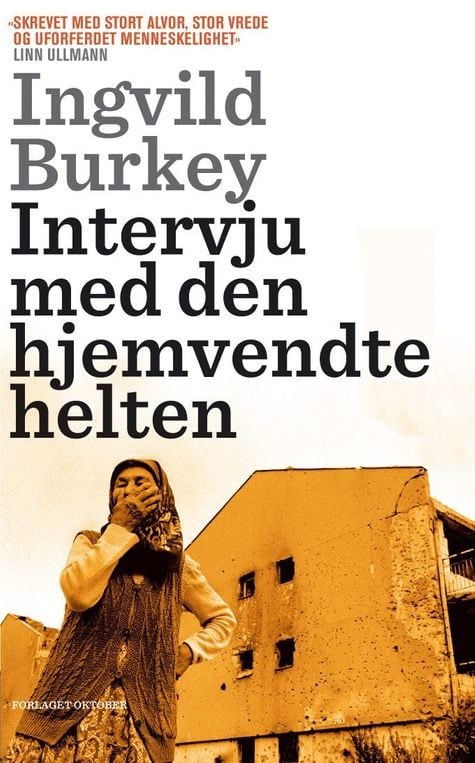Interview with the Homecoming Hero
With this collection of prose Ingvild Burkey expands and sharpens her range. Interview with the Homecoming Hero is marked by a high level of linguistic and political reflection. Burkey writes with irony and intellectual acuteness about borders, war and the dismantling of democracy. Praise for Interview with the Homecoming Hero: ”Political literature at its most…
With this collection of prose Ingvild Burkey expands and sharpens her range. Interview with the Homecoming Hero is marked by a high level of linguistic and political reflection. Burkey writes with irony and intellectual acuteness about borders, war and the dismantling of democracy.
Praise for Interview with the Homecoming Hero:
”Political literature at its most exclusive”
Dagbladet
”One of last year’s most beautiful and wisest books, written with great sincerity, great wrath and dauntless humanity”
Linn Ullmann
Excerpts from the book:
We walked slowly toward the border holding on to each other’s sleeve, whistling under our breath, trying to remember the magic animals we had once seen carved on our skin, in the dreams of our benefactors. We had not known, then, that we were designed for extinction. We took our shoes off at the checkpoint, it seemed the thing to do, for we could see the snow beyond the border post. The blindfolded guards were polite, but did not return our documents. A youth saluted as we handed over the banknotes. Someone we couldn’t see whistled gaily. We had made everything ready, yet we were not ready. That’s the way, the chief guard said gently, it’s quite in order. No one is ever ready. Now if your excellencies will kindly permit, I must put out the lovers’ eyes.
Sand trickling out of His left ear startles us so much we hear nothing of the first part of the speech, though the trembling in the ground is familiar. Then we recognise the voice and this is a triumph of science, since His voice was quite different. They’ve changed it, the sound is much improved, His love of the people made audible at last to the naked ear by high fidelity technicians. Remove your headphones or other electronic devices and observe a moment’s silence. Lying now on His back in the brown snow of Our Heroes’ Square, His great head severed, an island of calm amid the frenzied public transport, He speaks into the mind’s great hall: There are no revolutions, only sound recordings. As rigid as in His prime, He has no second thoughts, He is still preoccupied with the first one. Nor does He mind the calumny, bad press is instrumental to great music. History surrounds us like chicken wire. We who celebrated His fall, are felled by His moving shado Here there are no memories, only museums of war and childhood.
The bodies continue into the architecture. Spinal columns, arches, shiny domes. This is an arm. This is a wing. This is a house of worship. This is an arm bent behind the back in supplication. This is supplication. This mat of woven hair. The village women weave their hair in great mats, for the pilgrims to wipe their feet on. They enter the house of God on an empty stomach. This is a lung, the organ of groaning. This is the body. This is the architecture of the body. Groin vaults. Impediments. Trapped for centuries in the mortar, only an earthquake will bring us down.

